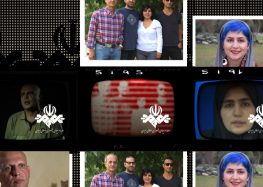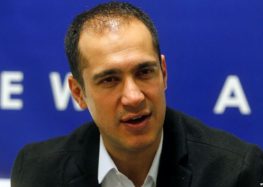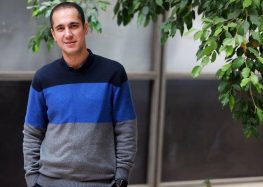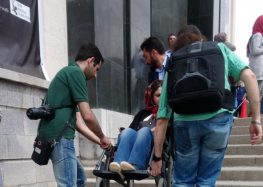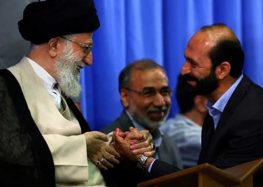Judiciary and Parliament Clash Over MP’s Questions on Judiciary Chief’s Banking Activities
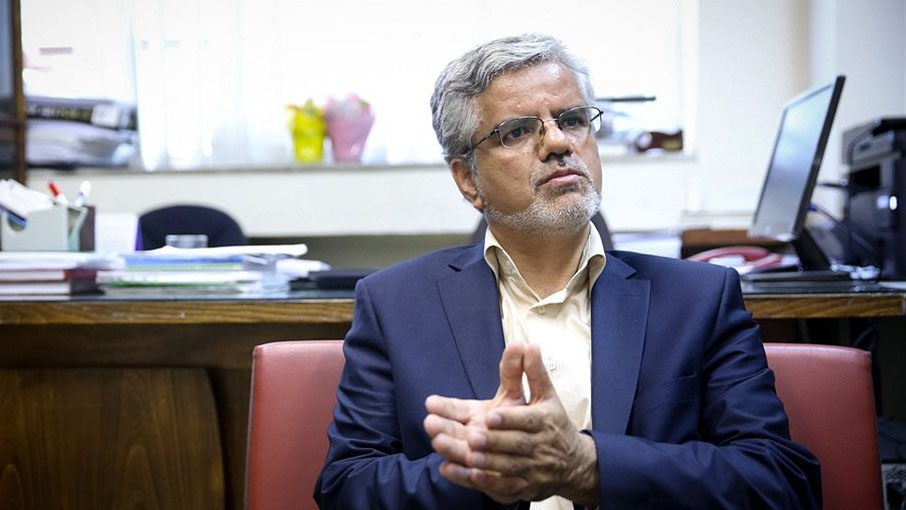
State Funds Deposited into the Bank Account of Sadegh Larijani At Issue
After avoiding a summons for days, Member of Parliament Mahmoud Sadeghi appeared in the Culture and Media Court in Tehran on November 29 to respond to questions from assistant prosecutors about several complaints against him, after he publicly questioned the Judiciary Chief about state funds deposited into his bank accounts.
Sadeghi, the reformist representative from Tehran, has come under intense pressure for the questions he raised, even though MPs ostensibly enjoy constitutional immunity in Iran. He was released after naming a guarantor, the semi-official Iranian Student News Agency (ISNA) reported.
Judiciary agents had tried to arrest Sadeghi on November 26 after he had raised the questions about Judiciary Chief Sadegh Larijani’s banking accounts. They were turned away only after the Speaker of the Parliament intervened.
“When we found out about [the attempt to arrest Sadeghi], I and Farid Mousavi, another representative from Tehran, went to Dr. Sadeghi’s house and after a discussion [over the phone with Parliament Speaker Ali Larijani] the agents fortunately decided not to arrest him for the time being,” said MP Mohammad Javad Fathi in an interview with ILNA news agency on November 28.
Speaker Ali Larijani is an uncomfortable position, acting as a mediator between his brother, Judiciary Chief Ayatollah Sadegh Larijani and a member of Parliament who has suggested the Judiciary Chief may have had unauthorized access to public funds.
In a speech in the open session of Parliament on November 14, MP Sadeghi, a reformist supporter of President Hassan Rouhani, called on the Judiciary Chief to reveal statements from bank accounts under his name where the government has been depositing funds.
“Which law allows state funds to be deposited into personal accounts?” asked Sadeghi.
The existence of “more than 63 personal bank accounts with [millions of dollars] in the name of Judiciary Chief Sadegh Larijani” was first reported by Dorr TV, an Iranian online news show on October 20, 2016, and on November 4 by Etemad newspaper.
Economics Minister Ali Tayebnia denied any wrong doing regarding the accounts on November 8 and said the deposits were for the exclusive use of the Judiciary.
For his part, the Judiciary Chief accused Sadeghi of slander and rejected any suggestion that the funds in question were used for personal purposes.
“The so-called personal accounts they are spreading lies about have existed since 1998, before my term as Judiciary Chief, with permission from the Supreme Leader, [Ali Khamenei],” Sadegh Larijani said on November 23. “These accounts belong to the Judiciary, not me. So all this talk about [millions of dollars] deposited in my personal account is 100 percent false.”
The Judiciary Chief also criticized his brother, Parliament Speaker Ali Larijani, for “keeping silent” about Sadeghi and slammed President Rouhani for ignoring “rumors” spread by one of his supporters. “The President has refused to contest rumors about me and on the other hand the Speaker of Parliament has kept silent too,” he said.
In response, Sadeghi wrote a letter to Judiciary Chief Sadegh Larijani on November 24, pointing out that parliamentarians have a constitutional right to question officials. “Amazingly…it seems that you have not seen my statements. If you refer to my two-minute speech in Parliament, you will see that I only asked a question without judgment, slander or insult,” Sadeghi wrote.
Meanwhile, Tehran Prosecutor Abbas Jafari Dolatabadi warned Sadeghi on November 28 that he must comply with the summons to answer questions regarding “eight private complaints and three public ones.” Dolatabadi did not identify the plaintiffs or the nature of the complaints but he said Sadeghi will now also have to answer questions about “resisting arrest and disturbing public order by inciting people to gather in front of his home.”
Dolatabadi rejected arguments that the Tehran MP was immune from prosecution under Articles 76, 84 and 86 of Iran’s Constitution which give legislators the right to question officials without fear of prosecution.
Article 86 states: “Members of the Assembly are completely free in expressing their views and casting their votes in the course of performing their duties as representatives, and they cannot be prosecuted or arrested for opinions expressed in the Assembly or votes cast in the course of performing their duties as representatives.”
“Deliberations over Article 86 during the [1979] Constitutional Convention indicates that immunity is not an Islamic concept. All citizens are equal in the eyes of God and anyone who commits a sin or a crime will be subject of prosecution,” Dolatabadi claimed.
In addition to questioning the Judiciary Chief’s banking activities, Sadeghi was among more than a dozen MP’s who called for a review of the 16-year prison sentence against prominent human rights activist Narges Mohammadi. The reformist MP has also condemned the Judiciary for bringing charges against Yashar Soltani, editor-in-chief of Memari News for publishing an official report on corruption in the Tehran Municipality.

